about
The Marine Regeneration Scheme is the first of its kind in the UK.
Our founder, Rob Thompson, had been recovering marine waste since 2014 through the dive charity he founded: Fathoms Free. Having no means of recycling the recovered plastic was frustrating and unbearable to say the least.
After all the time and effort it took to remove that waste from under the sea it seemed absurd, unintelligent and incongruous to bury or incinerate it. While most saw it as rubbish and treated it as such- Rob saw an opportunity, an unexploited resource with the capacity of having an infinite amount of possible applications and an equally long lifetime.
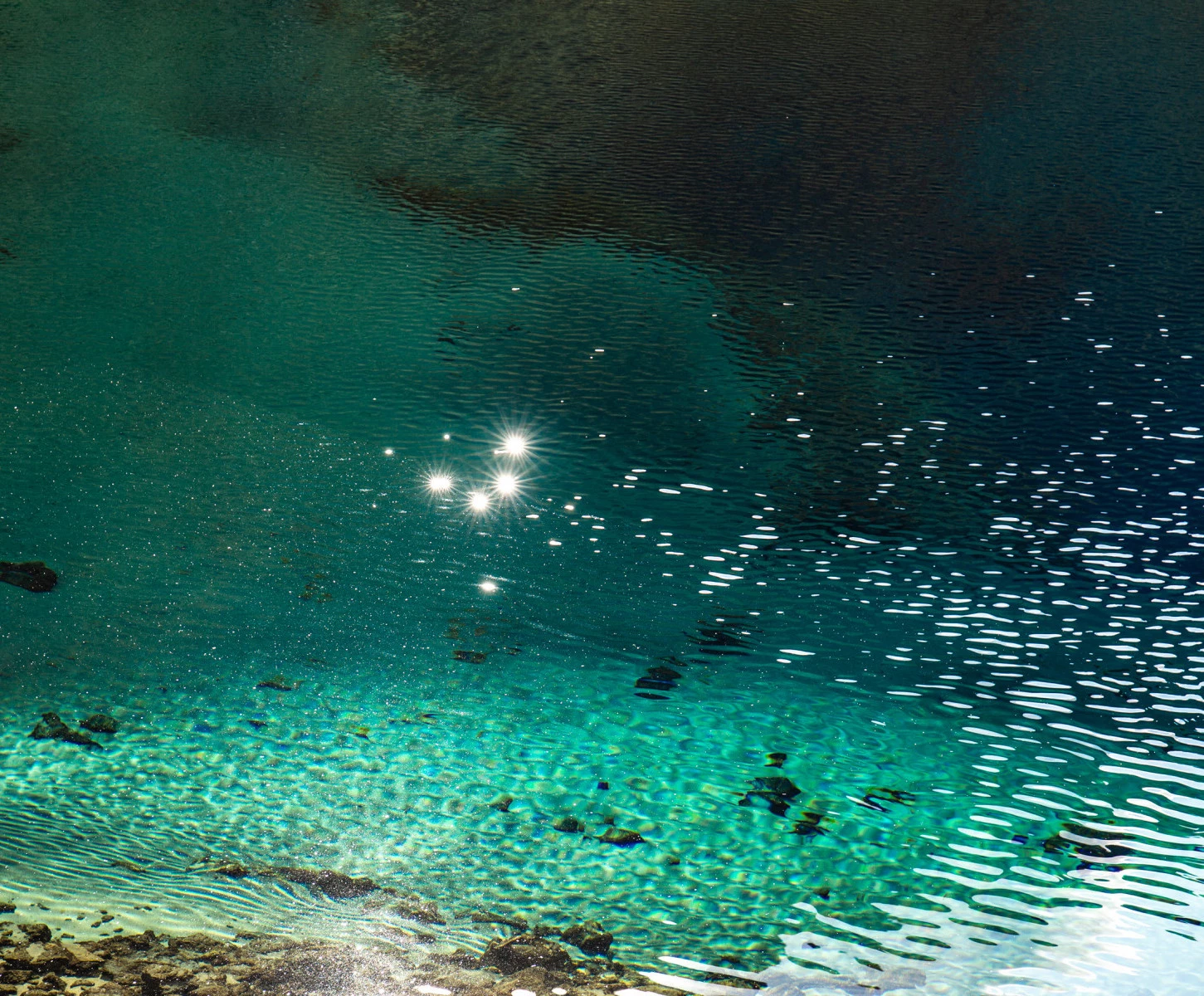
WHY WE DO WHAT WE DO
We love swimming, we're mad about diving and immensely passionate about all sea life. We would be incomplete (and a sorry bunch) without the ocean's healing energy. We need to live near it and we need to be in it.
What we don't want is to see more plastic in the sea than fish. What we don't want to see is life under water in harm's way.
What we want is for our children to enjoy it as we did when we were kids; not coming out of it with an infection due to pollution, or not enjoying it to the fullest because of debris or worse still ________.
There might be 5 ocean basins but we have only 1 World Ocean.
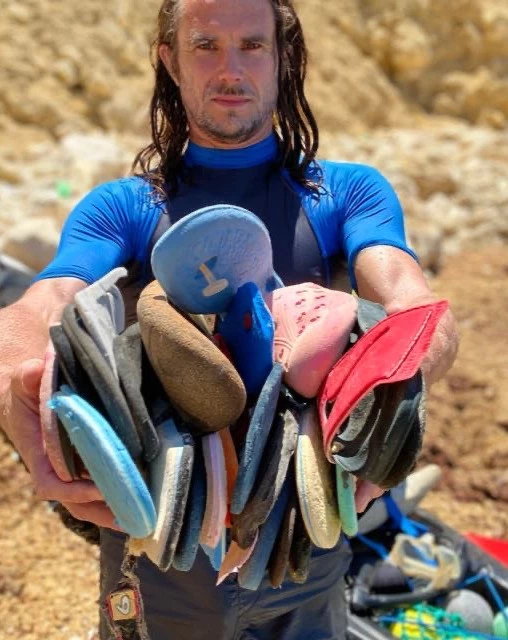
The scheme & who's eligible
The idea behind the Marine Regeneration Scheme was to create recycling routes for marine plastic, ideally capturing it prior to leaking in the marine environment and subsequently diverting it into the circular economy.
Creating such routes without scale was impossible and therefore we partnered with a multitude of environmental charities, beach clean groups, specialist recyclers, the fishing community, universities, innovators, government bodies, organisations and councils to achieve our goals and facilitate theirs.
Through such collaborations we have overcome the industry's main challenges:
1) how to best recycle low value plastic waste
2) how to be economically viable when transporting low value waste (many times from remote locations) and
3) transporting 'low' volumes
which are at the root of the recycling plastic crisis.
After analysing the volumes of waste coming through the MRS we observed the plastic to be a mix of post-consumer litter, fishing and maritime industry waste; at this point it also become evident that prevention and recovery had to go hand in hand in our operation for our efforts to really make sense.
The Marine Regeneration Scheme supports communities that are recovering marine plastic through providing them with a free recycling route, including offering them the ability to recycle previous problematic materials like fishing nets.
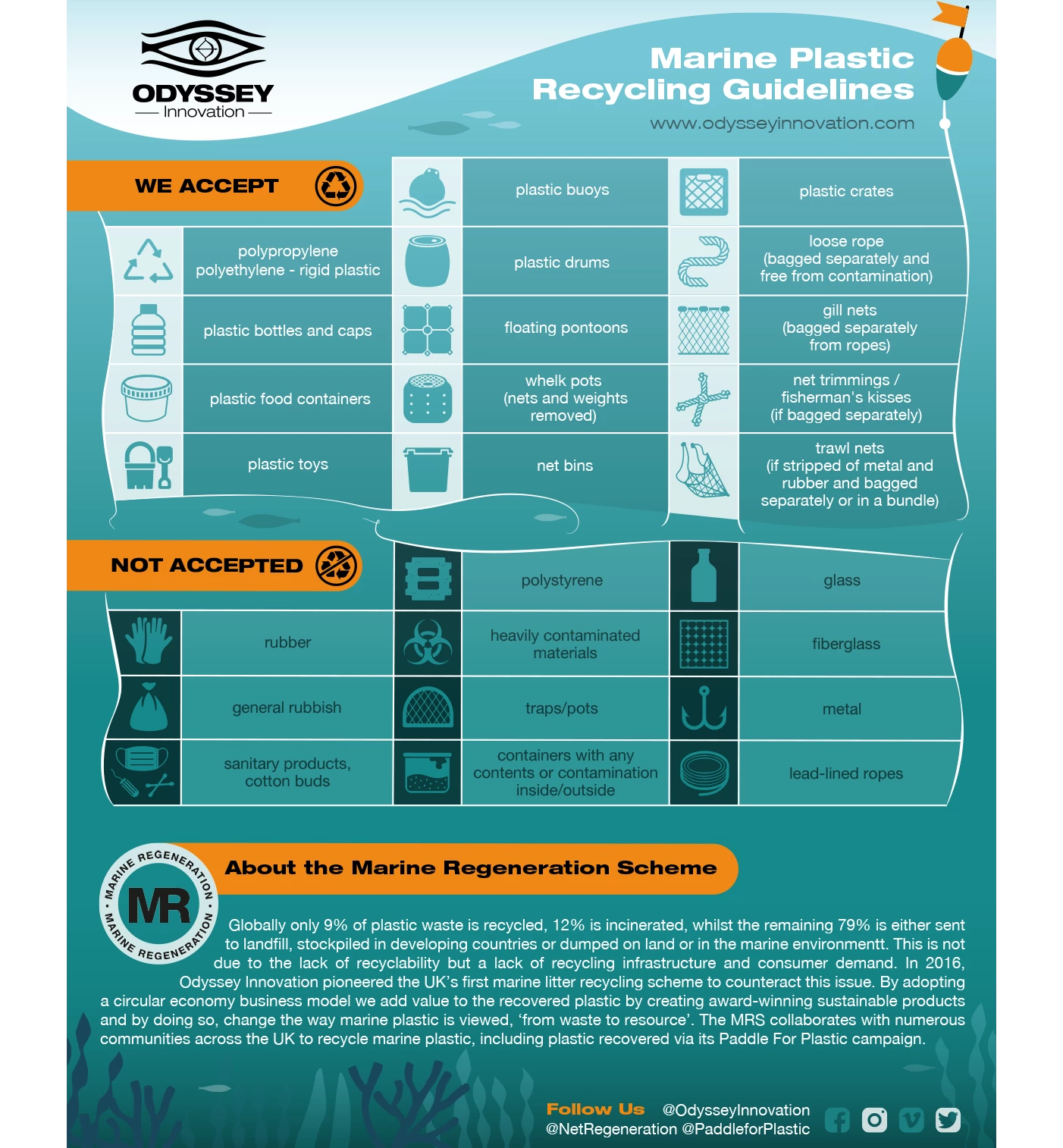
The Process
Our recycling Scheme is simple and practical.
The guidelines you see here (to the left) were made for all of the Marine Regeneration stakeholders, from individuals to commercial entities, governmental departments to eco-warriors; regardless of scale.
All we ask is to ensure all materials are clean, have no bio-fouling on them and have all non-recyclable components removed. We will ask for a photograph(s) of the waste along with an approximate weight for the load prior to directing you to our sorting facility in Exeter or to the nearest Marine Regeneration wheelie bin or skip.
The only thing we require from the Scheme's stakeholders is to cover the cost of transporting their load to us and we'll take care of the rest! Fees apply only if the material is sent to us in a fouled state.
Please stop sending reusables to landfills, stop paying fees, stop incinerating and contributing to increased CO2 in our atmosphere. Please use our free port reception facilities, help us divert plastic from entering the marine environment and extend it's lifetime by giving it a second life.
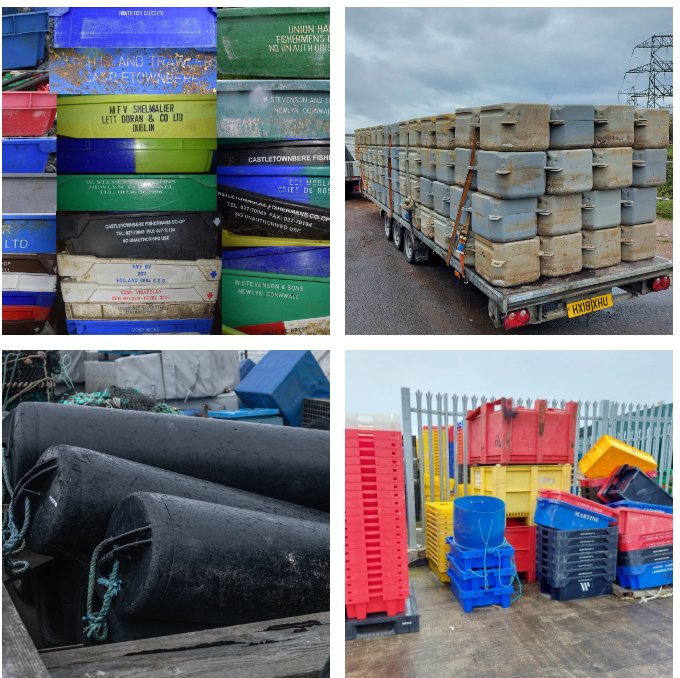
Why recycling with us works
Since 2014 we've been busy at work setting up the first marine plastic recycling scheme in the UK
The Marine Regeneration Scheme has been receiving global recognition as an example of best practice and sustainability within the fishing industry and beyond. It's been selected by the European Commission to provide expertise on various matters concerning Port Reception Facilities and Extended Producer Responsibility prior to developing policies. More recently, the Scheme has also been endorsed by the Global Ghost Gear Initiative's panel of experts and has also lead to the Company's Founder being awarded the title of COP 26 Climate Change Ambassador.
Furthermore, the scheme enjoys dependable and established networks which are fully traceable and span from Dover (UK South West) to Flint (Wales), reliefs cost burdens for fishermen and harbour authorities, supports industry, supports cleaner and safer oceans for all those dependent on it, gives its stakeholders pride and a great story by allowing them to participate within the circular economy whilst also closing the ‘recycling loop’ by converting the plastic waste back into products such as kayaks, body surfing handplanes, tote boxes and recycling bins. By putting recycled plastic back into the economy the Scheme also has a significant CO2 saving over using new virgin plastic and decreases emissions from incineration and landfill waste disposal.
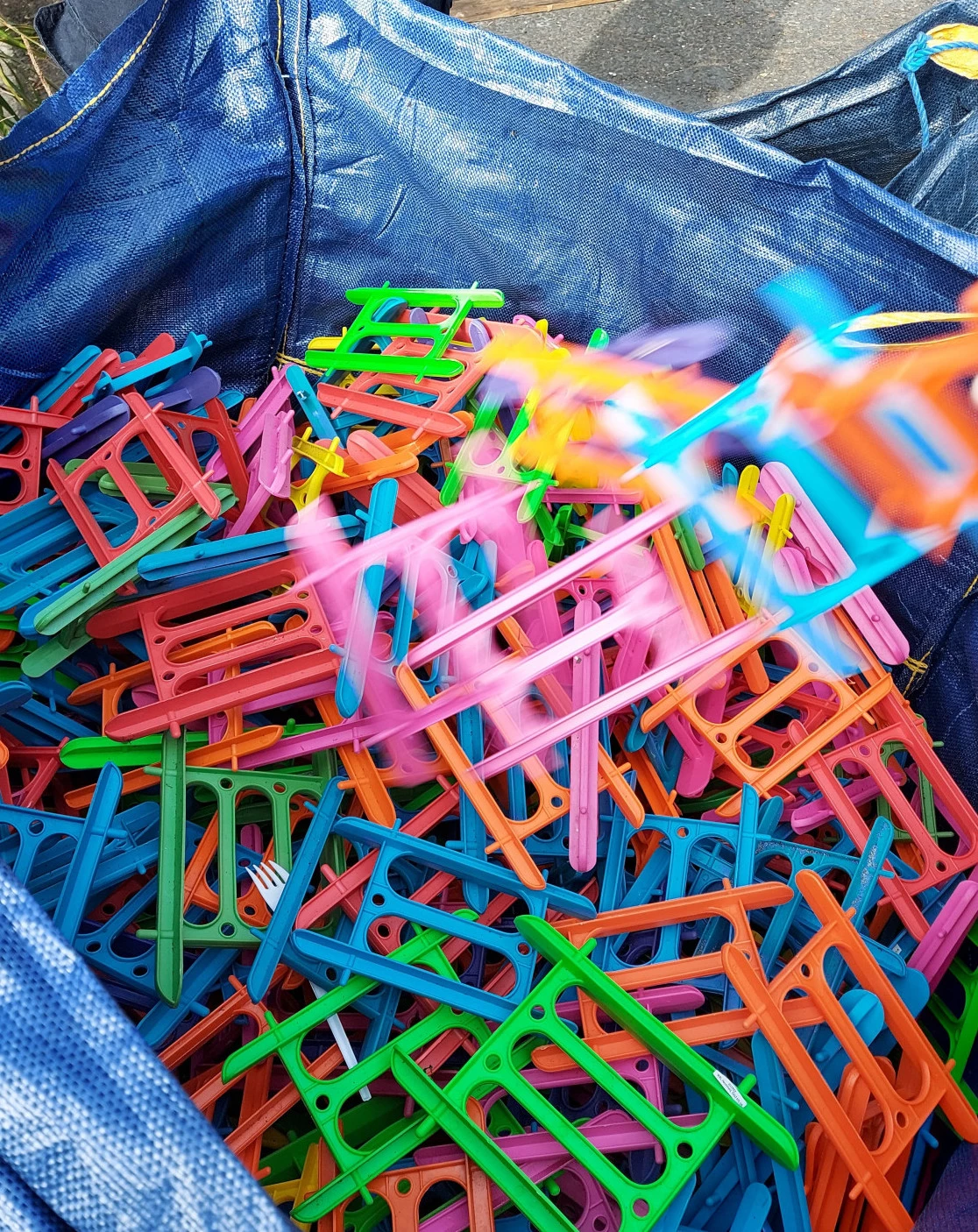
FROM WASTE TO RESOURCE
From 'Waste to Resource' is a phrase coined by Odyssey Innovation's Founder, Rob Thompson, which sums up his primary goal as a marine conservationist. Behavioral change is essential if we are to alter the Earth's critical fate. Extending the product life cycle of all plastic products is at the very heart of the circular economy and what we do.
To date all the material we have recycled has found itself being transformed back into granulate, pellets or filaments suitable for rotomolding, weaving and injection molding all having a plethora of exciting applications within the circular economy; these could either be in our very own branded products such as our infamous kayaks, bins, tote boxes, handplanes and SUPs or in other industries using our material such as the automotive industry, home cleaning products, fashion industry, garden furniture and more.
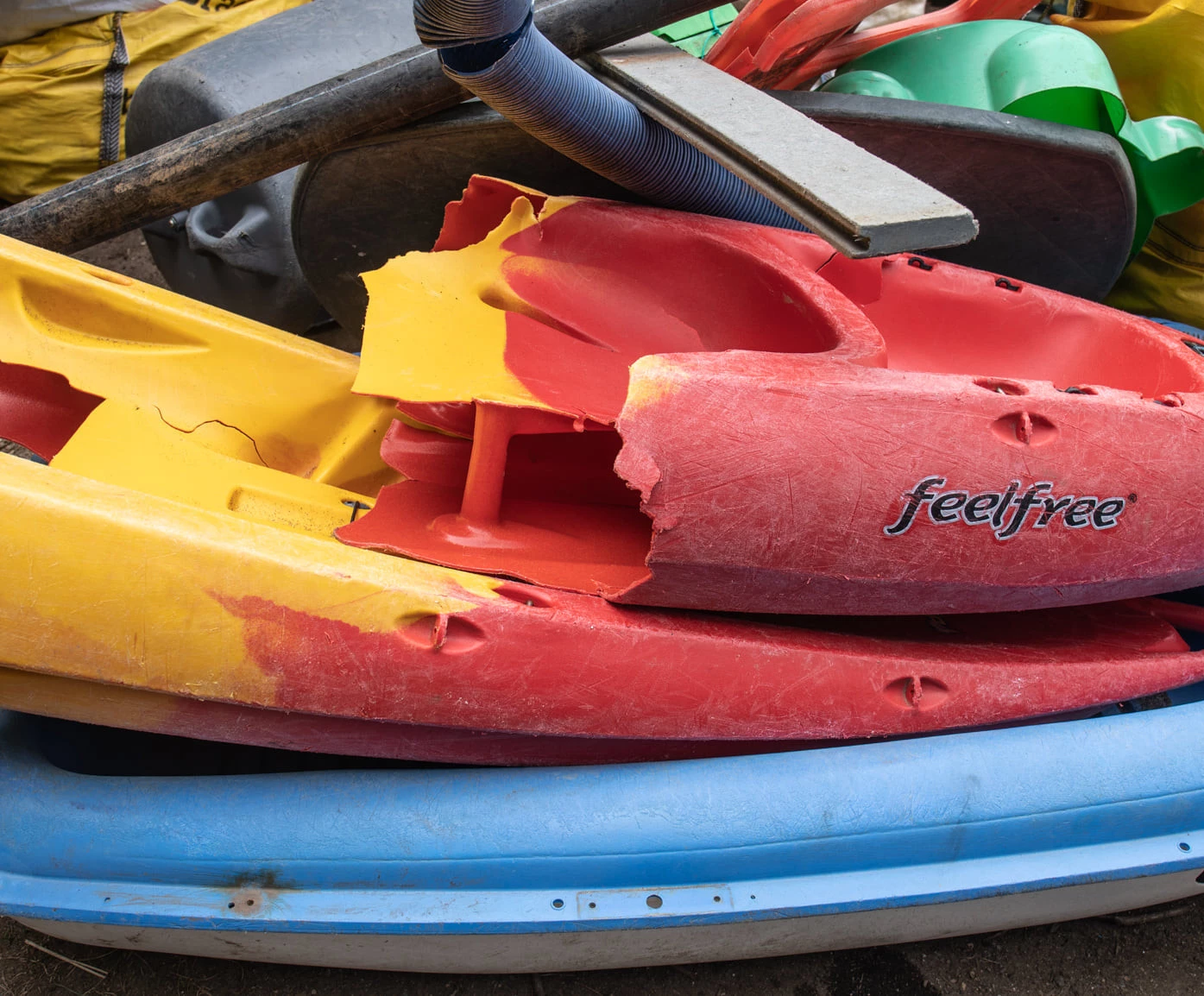
100% CIRCULAR: GIVING SUPS & KAYAKS A SECOND LIFE
Whatever your preferred paddle sports, the likelihood is that you're equally as passionate about the sea and nature as we are; you've also probably noticed a huge increase in plastic pollution in your expeditions, particularly along stretches of coastline that are inaccessible from land.We never waste any piece of rigid plastic and so recycling kayaks, canoes and SUPs is only natural to us. If you will cover the cost, we will recycle it back into the circular economy via our Marine Regeneration Scheme. Through this scheme we support the ambition of several watersports hire shops across the UK in their quest for a more sustainable fleet and business. Fore more information kindly contact us or view our map to see our partners.
